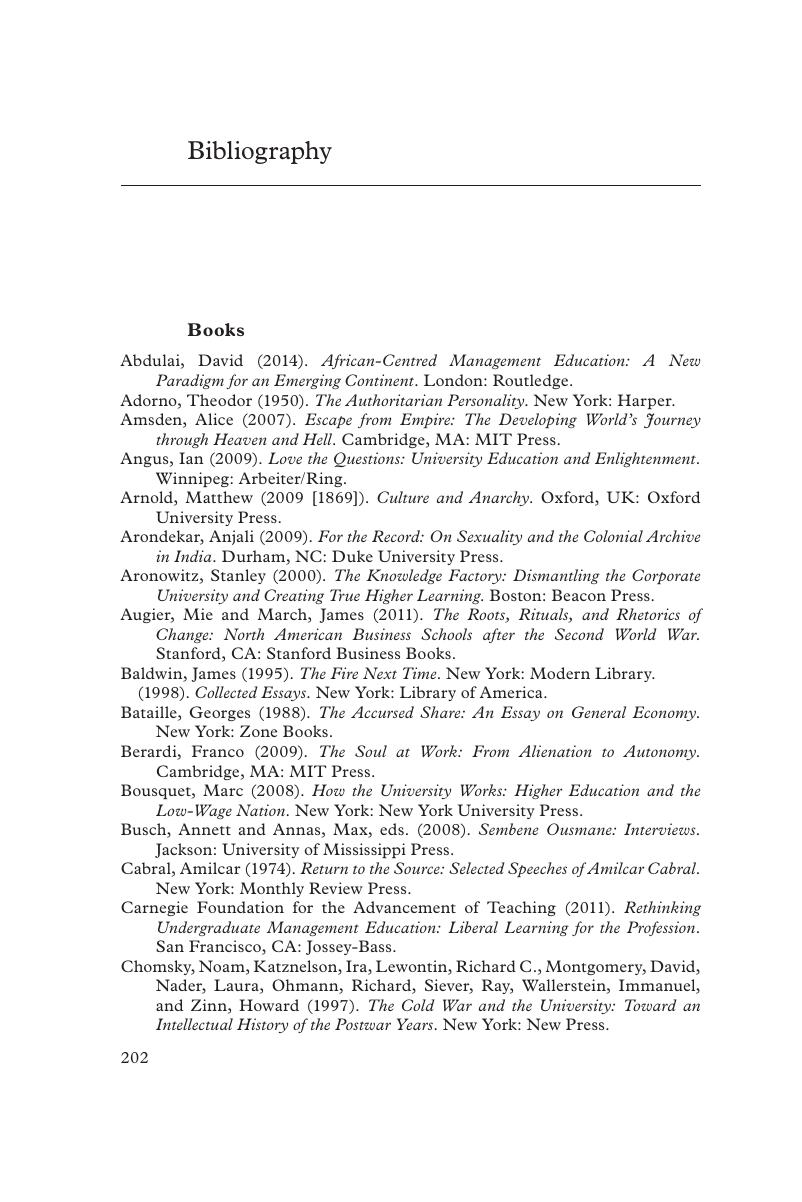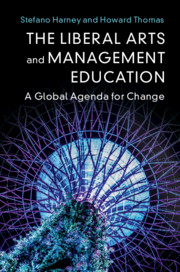Book contents
- The Liberal Arts and Management Education
- The Liberal Arts and Management Education
- Copyright page
- Epigraph
- Contents
- Preface
- Acknowledgements
- Part I Liberal Management Education Today
- Part II The Liberal Heritage of Management Education
- Part III The Future of Liberal Management Education
- Postscript
- Bibliography
- Index
- References
Bibliography
Published online by Cambridge University Press: 10 January 2020
- The Liberal Arts and Management Education
- The Liberal Arts and Management Education
- Copyright page
- Epigraph
- Contents
- Preface
- Acknowledgements
- Part I Liberal Management Education Today
- Part II The Liberal Heritage of Management Education
- Part III The Future of Liberal Management Education
- Postscript
- Bibliography
- Index
- References
Summary

- Type
- Chapter
- Information
- The Liberal Arts and Management EducationA Global Agenda for Change, pp. 202 - 215Publisher: Cambridge University PressPrint publication year: 2020



